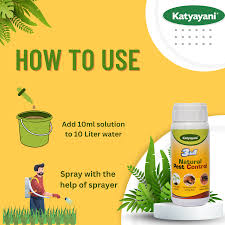Non-Toxic Pesticides for Your Vegetable Garden
When it comes to protecting your vegetable garden from pests, using non-toxic pesticides is not only better for the environment but also safer for you and your family. Here are some effective non-toxic pesticide options to keep your vegetables healthy and thriving:
Neem Oil:
Neem oil is a natural insecticide that can help control a variety of pests such as aphids, mites, and caterpillars. It works by disrupting the feeding and reproductive habits of insects without harming beneficial insects.
Diatomaceous Earth:
Diatomaceous earth is a powdery substance made from fossilized algae that can effectively control pests like slugs, beetles, and earwigs. It works by dehydrating insects upon contact, making it a safe and non-toxic option for pest control.
Garlic Spray:
A homemade garlic spray can deter pests like aphids, caterpillars, and beetles from infesting your vegetable garden. Simply blend garlic cloves with water and strain the mixture before spraying it on your plants.
Soap Spray:
A soap spray made with liquid castile soap can help control soft-bodied insects like aphids, whiteflies, and spider mites. Mix a small amount of soap with water in a spray bottle and apply it to affected plants.
Companion Planting:
Utilizing companion planting techniques can help naturally repel pests from your vegetable garden. For example, planting marigolds alongside your vegetables can deter nematodes, while planting basil near tomatoes can repel tomato hornworms.
By incorporating these non-toxic pesticide options into your gardening routine, you can protect your vegetable garden from pests while promoting a healthy and sustainable environment for both plants and beneficial insects.
Effective and Safe Solutions for Keeping Your Vegetable Garden Pest-Free
- What can I use to stop bugs from eating my vegetable plants?
- How do I keep my vegetable garden pest free?
- What is safe to spray on my vegetable garden?
- What is the safest pesticide for vegetables?
What can I use to stop bugs from eating my vegetable plants?
To address the common concern of bugs eating vegetable plants in your garden, consider using non-toxic pesticides as a safe and effective solution. Options such as neem oil, diatomaceous earth, garlic spray, soap spray, and companion planting can help deter pests without harming beneficial insects or compromising the health of your plants. These natural alternatives provide a sustainable way to protect your vegetable garden from insect damage while promoting a harmonious ecosystem that supports plant growth and biodiversity. By incorporating non-toxic pesticides into your gardening practices, you can effectively manage pest infestations and ensure the health and vitality of your vegetable plants.
How do I keep my vegetable garden pest free?
To keep your vegetable garden pest-free without resorting to toxic pesticides, consider implementing natural and eco-friendly pest control methods. Start by practicing good garden hygiene, such as regularly removing weeds and debris that can harbor pests. Encourage biodiversity by planting a variety of flowers and herbs that attract beneficial insects like ladybugs and lacewings, which feed on common garden pests. Utilize physical barriers like row covers to protect vulnerable plants from insect damage. Additionally, try companion planting techniques to repel pests naturally, such as planting onions near carrots to deter carrot flies. By combining these strategies and staying vigilant for early signs of pest infestations, you can maintain a healthy and thriving vegetable garden without the need for harmful chemicals.
What is safe to spray on my vegetable garden?
When considering what is safe to spray on your vegetable garden, it is important to prioritize non-toxic pesticide options that are effective in controlling pests while minimizing harm to the environment and beneficial insects. Safe options include natural remedies like neem oil, diatomaceous earth, garlic spray, soap spray, and companion planting techniques. These alternatives can help protect your vegetable garden from common pests without introducing harmful chemicals that could potentially impact the health of your plants or contaminate your produce. By choosing non-toxic pesticides, you can maintain a healthy and thriving vegetable garden while promoting a sustainable gardening approach that is safe for you and the ecosystem.
What is the safest pesticide for vegetables?
When seeking the safest pesticide for vegetables, many gardeners turn to non-toxic options that are effective in controlling pests while minimizing harm to the environment and human health. Among the top choices for safe pesticide solutions for vegetable gardens are natural remedies such as neem oil, diatomaceous earth, garlic spray, soap spray, and companion planting techniques. These alternatives work by targeting specific pests while preserving the overall health of the garden ecosystem. By opting for these non-toxic pesticides, gardeners can protect their vegetables without compromising on safety or sustainability.

